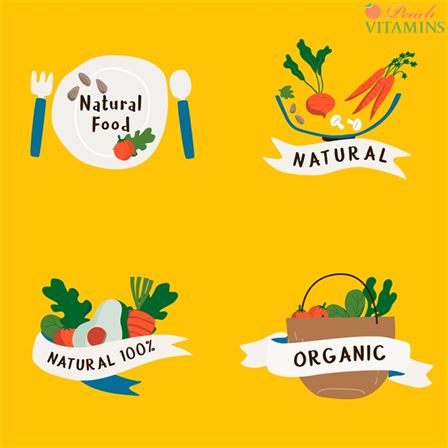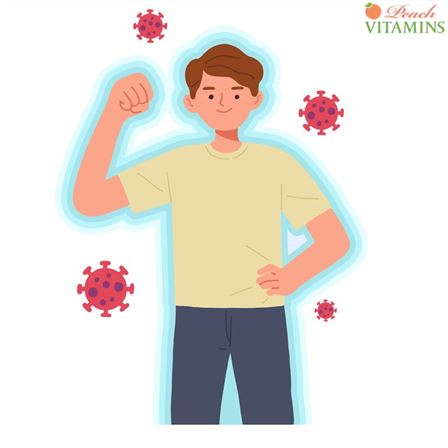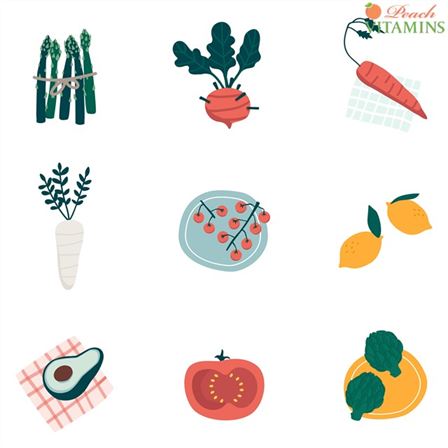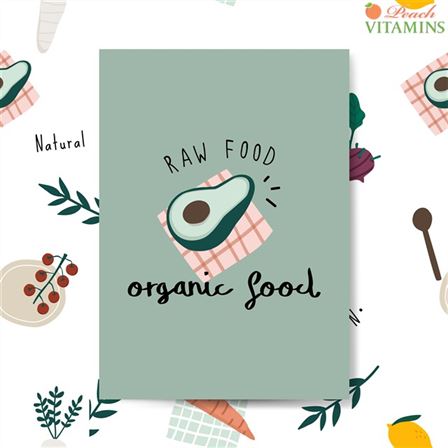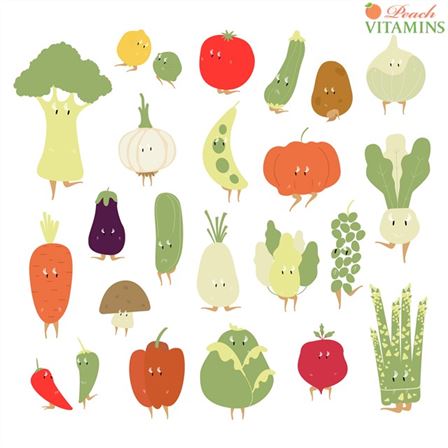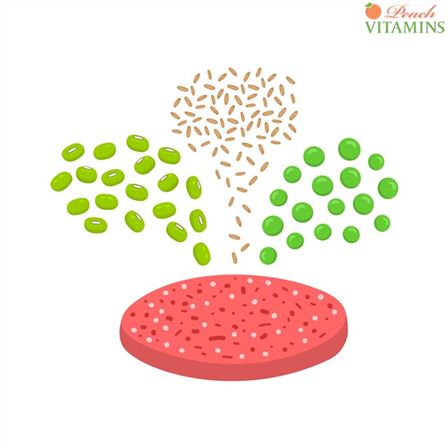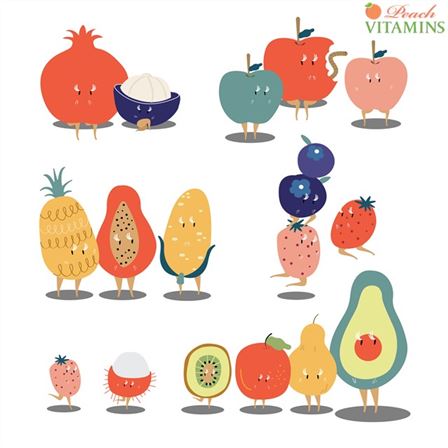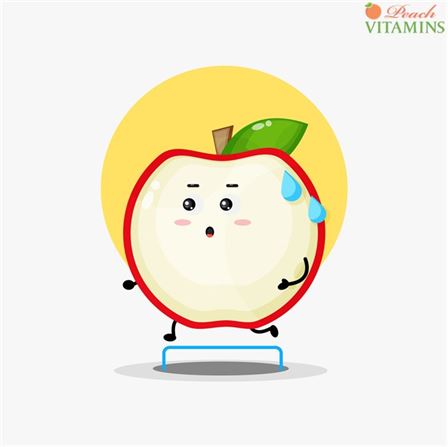Are you interested in learning about the benefits of a plant-based diet? Then you should check out this article! Learn why a plant-based diet is the best option for your health and wellness!
To many people’s surprise, what we eat has a profound impact on our health and wellness. Plant-based nutrition is an approach that emphasizes eating whole plant foods to maintain optimal health and reduce the risk of chronic diseases. The diet prevents and treats chronic illnesses and other ailments and is a healthy way to lose weight and get fit.
Why Are We Eating So Much Meat?
The American diet consists primarily of meat products, which are high in saturated fat and cholesterol. This type of food can lead to heart disease, diabetes, obesity, cancer, stroke, osteoporosis, arthritis, depression, anxiety, Alzheimer’s Disease, dementia, and more. In addition, animal protein contains hormones such as estrogen and progesterone, which may increase the risk of breast cancer.
A low-fat vegan diet will help prevent these problems because it eliminates all processed meats, dairy, eggs, refined sugar, white flour, red wine, coffee, alcohol, and trans fats from the diet. It also includes many fruits, vegetables, legumes, nuts, seeds, grains, and herbs.
A healthy diet promotes good digestion and helps eliminate toxins through urine and feces. These substances include pesticides, herbicides, fertilizers, preservatives, dyes, artificial sweeteners, MSG, nitrates, heavy metals, radiation, and pharmaceutical drugs.
Is A Plant-Based Diet Healthy?
A whole-foods, plant-based diet is considered one of the most nutritious diets available today. Research has consistently shown that adopting a vegetarian or vegan lifestyle reduces the risk of cardiovascular disease, hypertension, and digestive disorders.
Whole-food, plant-based diets provide essential nutrients like vitamins B12, D3, E, K2, C, folate, iron, magnesium, calcium, zinc, selenium, omega 3 fatty acids, fiber, antioxidants, phytochemicals, and polyphenols. They contain no added sugars, salt, gluten, soy, corn, peanuts, tree nuts, milk, cheese, eggs, fish, shellfish, pork, beef, poultry, lamb, or other animal product.
Excessive consumption of unhealthy fast food, sugary drinks often characterizes the Western diet with fried foods, salty snacks, junk mail, and highly processed convenience items.
People who follow this diet typically consume too much sodium, saturated fat, carbohydrates, calories, and simple carbs. These things contribute to poor health outcomes, including increased inflammation, insulin resistance, blood pressure, elevated triglycerides, decreased HDL levels, and higher rates of metabolic syndrome.
What Is The Difference Between Vegan And Vegetarian Diets?
The difference between vegan and vegetarian diets as a category of diets is not clear-cut. Some vegans avoid consuming honey while others do not; some vegetarians drink cow’s milk over almond milk. There are several different definitions of both terms:
Veganism – Refers to abstaining from using or ingesting anything derived from animals. Vegans believe that animals should be treated humanely, but they don’t want their bodies harmed during slaughter.
Vegetarianism – Considers only plants and excludes all forms of animal flesh. Most people consider themselves “vegetarian” rather than “vegan.”
Flexitarianism – Combines aspects of both veganism and vegetarianism. Flexitarians eat less meat than vegetarians but still refrain from eating animal products.
Pescetarianism – Includes seafood but does not exclude land animals. Pescatarians usually eat fish at least once per week. The pescatarian diet has been linked to a lower risk for heart disease, cancer, type 2 diabetes, obesity, stroke, Alzheimer’s Disease, depression, anxiety, and dementia. It also lowers cholesterol, reduces oxidative stress, increases longevity, and may help prevent osteoporosis.
Which One Should I Follow?
There isn’t an ideal diet plan out there for everyone. It would be best if you found what works best for you. A diet rich in fruits, vegetables, legumes, grains, seeds, nuts, beans, herbs, spices, and healthy fats will give your body everything it needs without adding unnecessary toxins.
If you’re looking to lose weight, focus on cutting back on refined sugar, alcohol, caffeine, trans fats, artificial sweeteners, and hydrogenated oils. Avoid white flour, dairy, red meats, and processed foods. The health benefits of following a whole-food, plant-based diet include improved digestion, better nutrient absorption, reduced allergies, lowered risk of chronic diseases, and more energy.
It can take time to transition into a new way of life, so start slowly with small changes first. If you have questions about which one to pick, talk to your doctor. They might recommend a specific dietary approach depending on your medical history.
What Is The Difference Between Plant-Based Food Nutritionists And Dietitians?
The difference between plant-based food nutritionists and dietitians is pretty straightforward. Both professionals work hard to make sure patients get enough nutrients through proper meal planning and preparation. However, nutritionists tend to specialize in specific areas such as sports performance, pregnancy, children, aging adults, etc. In contrast, dietitians provide advice across many topics like general wellness, fitness, and lifestyle management.
How Do These Professionals Help Me With My Health Goals?
Nutritionists and dieticians are experts when it comes to helping clients achieve optimal health goals. Addressing the health effects on your long-term health depends mainly on how well you follow these tips:
- Eat plenty of fresh produce and lean proteins.
- Include fiber-rich carbs, protein-packed sources of fat, and low glycemic index carbohydrates.
- Drink lots of water throughout the day.
- Get adequate sleep every night.
- Exercise regularly.
- Limit sugary drinks and limit salt intake.
How Do You Know If Someone Is A Plant-Based Food Nutritionist?
A plant-based food nutritionist addresses health matters from all angles, including physical activity, eating habits, mental wellbeing, environmental impact, and much more. They often offer services beyond just nutritional counseling because they want their clients to live healthier lives.
They understand that people don’t always know where to begin or even try something different. That’s why they’ll guide them step by step toward making positive changes.
How Do You Find Plant-Based Food Nutritionists?
You can find a whole food plant-based nutritionist online using Google, Yelp, Facebook, Instagram, Pinterest, Twitter, and YouTube. There are also local resources available too. Just search around until you find someone who seems right for you.
Do I Need To Be Vegan Or Vegetarian For This Type Of Professional?
Whether you choose veganism or vegetarianism, this professional has experience working with both diets. It doesn’t matter, though, as they address health conditions regardless of what kind of diet you eat.
Plant-based protein options are becoming increasingly popular among consumers, but there’s still some confusion over exactly what constitutes “plant-based.” Animal-based products aren’t necessarily bad for us—in fact, we need animal protein to survive! But consuming large amounts of meat and dairy products may not be ideal for everyone. In addition to being high in saturated fats, cholesterol, and calories, animal foods contain compounds called hormones and antibiotics. So while it’s important to include healthy plant-based alternatives, it’s equally beneficial to avoid processed meats and other unhealthy ingredients found in conventional packaged foods.
What Are Some Foods That Should Be Avoided On A Plant-Based Diet?
Some foods that should be avoided on a plant-based diet include:
- Processed meats
- Sugar sweetened beverages like fruit juices
- High fructose corn syrup
- Artificial colors/flavors
- Trans fats
- Hydrogenated oils
- Dairy milk
- Caffeine
- Alcoholic beverages
- Refined grains
- Pesticides
- GMOs
- Food additives
- Salt
- Unhealthy fats
Conclusion
Plant-based diets with plant-based foods nutritionists have been proven effective at improving overall wellness with a wide variety of tailored suggestions for your health. The best way to get started is by following the advice provided above. Once you’ve decided to change your lifestyle, make sure to stick with it. Your body will thank you later.
FAQs for a Plant-Based Diet Nutritionist
Can Plant-Based Diets Provide Complete Nutrition?
Plant-based eating plans provide complete nutrition. However, when talking about “complete” nutrition, it means providing nutrients needed to maintain optimal health. These nutrients come primarily from fruits, vegetables, legumes, nuts, seeds, herbs, spices, and unprocessed whole-grain bread and cereals. While these foods meet most nutrient needs, many individuals require additional supplementation to ensure adequate intake of specific vitamins and minerals.
The best way to achieve this is by paying particular attention to consuming various plant-based foods throughout the day. This will help ensure that you are getting all the necessary nutrients.
Can You Lose Weight Eating Plant-Based Food?
Your body mass index determines if you’re overweight or obese. If you fall into one of those categories, then yes, you can lose weight by switching to a plant-based diet plan. A variety of foods for weight loss include Nordic diets, Mediterranean diets, and DASH diets. All three of these types of diets emphasize fresh produce and low-fat dairy.
Your body weight also plays an essential role in how much fat you store. When you eat more food than you burn off through exercise, your metabolism slows down as well. As a result, more energy goes towards keeping excess pounds rather than burning them away. To combat this effect, try adding extra physical activity to your daily routine.
K-12 district in the country pledging to offer plant-based food options
Source: (minnpost.com)
Burger King unveils plant-based nuggets
Source: (newsnationnow.com)
[wps_products product_id=”1638122029091″ html_template=”product.php”]

